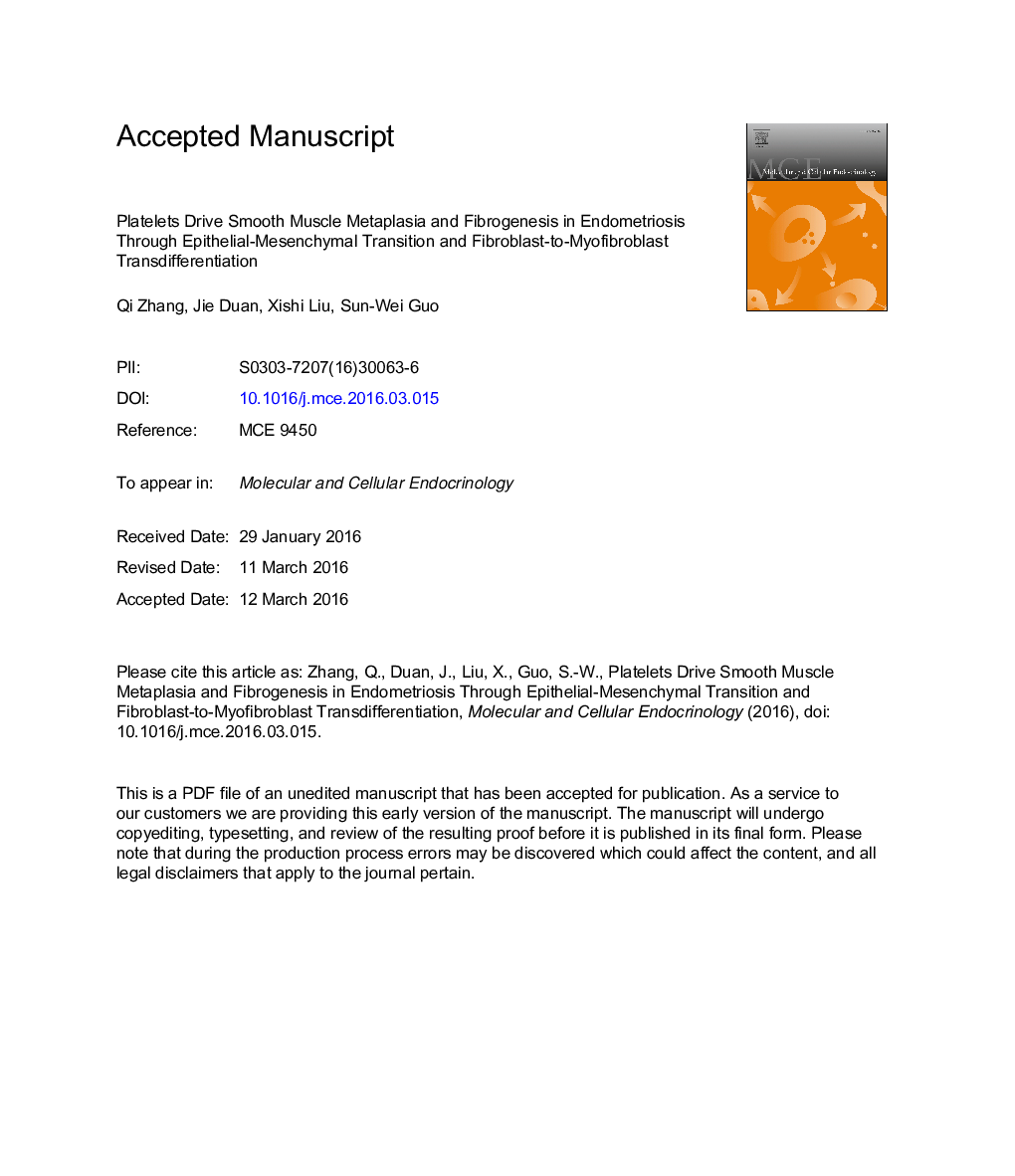| Article ID | Journal | Published Year | Pages | File Type |
|---|---|---|---|---|
| 8476765 | Molecular and Cellular Endocrinology | 2016 | 63 Pages |
Abstract
Smooth muscle metaplasia (SMM) and fibrotic tissues are frequently seen in endometriotic lesions, yet the mechanisms underlying their formation are poorly understood. In this study, we investigated the roles of activated platelets in driving epithelial-mesenchymal transition (EMT) and fibroblast-to-myofibroblast transdifferentiation (FMT) in endometriosis. Through in vitro experimentations, we found that activated platelets, through the release of TGF-β1 and the induction of TGF-β/Smad signaling pathway, promoted EMT and FMT in endometriosis, resulting in increased cell contractility, collagen production, and ultimately to fibrosis. TGF-β blockade reversed these processes. Prolonged exposure of endometriotic stromal cells to activated platelets induced increased expression of α-SMA as well as markers of differentiated smooth muscle cells. Consequently, endometriotic lesions and their microenvironment contain all the necessary molecular machinery to promote SMM and fibrogenesis. Our results suggest that endometriotic lesions are wounds that undergo repeated injury and healing, highlighting the importance of platelets in the development of endometriosis.
Related Topics
Life Sciences
Biochemistry, Genetics and Molecular Biology
Cell Biology
Authors
Qi Zhang, Jie Duan, Xishi Liu, Sun-Wei Guo,
